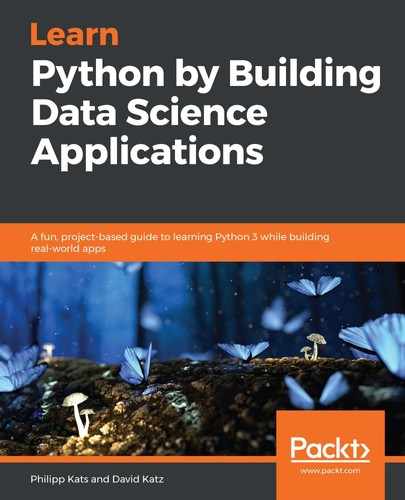Let's imagine we're building a service for the 311 call center. The goal is to estimate the expected time it will take to close the complaint. We will start with a terribly naive model—one that returns a median value for a given type of complaint. As such, it is essentially a pre-computed lookup, similar to the one we used earlier; computing the median is trivial, so we won't cover it. If needed, the code is stored in the repository. As a result, we have a JSON file with a simple key-value structure; for each type of complaint, it stores the median time.
Now, let's modify our existing API to use this data:
- First of all, copy the file and call it 311v1.py. Now, let's create a simple class that resembles a scikit-learn model, using lookup data:
class naive_model:
data = None
def __init__(self, path='./data/model.json'):
with open(path, 'r') as f:
self.data = json.load(f)
def predict(self, type_):
return self.data.get(type_, None)
Why do we make it similar to the scikit-learn models? Because that way, it would be easier to swap it with the real one in the future!
- Now, we only need to initialize the model on load and replace the hardcoded hour value with expected_time, predicted by the model:
app = FastAPI()
model = naive_model()
@app.get("/complaints/time/{complaint_type}")
def complaints(complaint_type: str):
return {"complaint_type": complaint_type,
"expected_time": model.predict(complaint_type)}
- Again, run it via Uvicorn:
uvicorn 311v1:app --reload
- Specify the type of complaint, as in the following example:
$ http://127.0.0.1:8000/complaints/time/noise
{"complaint_type":"water quality","expected_time":19.29}
Next, let's see how to validate this data.
